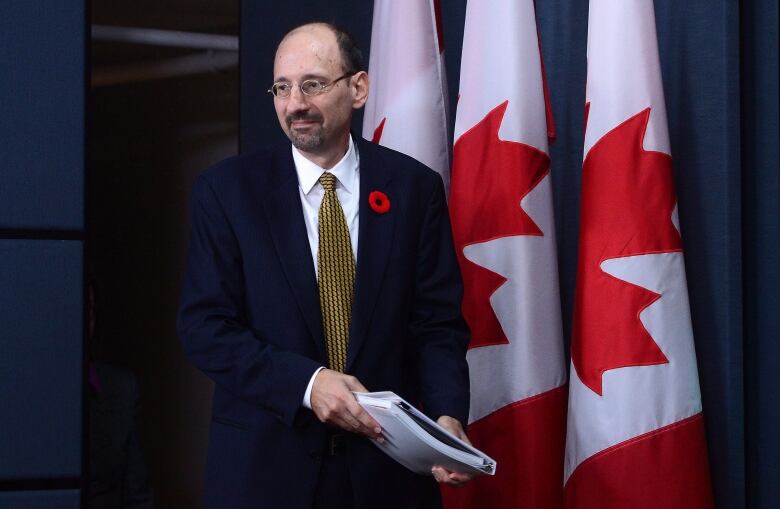Prison needle exchanges driven by security, not health concerns, federal watchdog says in critical report
Few inmates have enrolled in the needle exchange program, according to correctional investigator

Only a "handful" of inmates enrolled in the prison needle exchange program in its first 10 months, because Correctional Service Canada (CSC) appears to have designed the program around security considerations rather than health, according to the Correctional Investigator of Canada's annual report.
The report from Ivan Zinger, the ombudsman for federally sentenced offenders, on the country's prison system was tabled in Parliament on Tuesday, outlining several concerns with the approach prison officials have taken in regards to the needle exchange program.
Zinger noted that the purpose of prison needle exchanges is reduce harm associated with injection drug use, namely the spread of infectious diseases like HIV/AIDS and hepatitis C, but CSC won't be successful in that goal if inmates don't participate in the program.
He urged CSC to increase participation by considering best practices for successful prison needle exchanges detailed by the United Nations, which include:
- Leadership support at the highest level.
- Steadfast commitment to harm reduction and public health objectives.
- Clear policy direction and oversight of the program.
- Participation of staff and prisoners in planning and operational process.
The prison needle exchange program (PNEP) was launched in June 2018 at Atlantic Institution in New Brunswick and Grand Valley Institution for Women in Ontario. It was gradually introduced to other CSC facilities afterwards.

"There seems to be a lack of trust and confidence in the program, from both inmates and staff," said Zinger in the report. "Too much of what should be an exclusively health and harm reduction program has been shaped by security concerns."
Drug possession still results in punishment
According to Zinger, establishing the program explicitly recognizes that a zero-tolerance drug policy doesn't work, and that it's impossible to keep drugs out of prisons, however, he notes CSC has launched the program in the context of a zero-tolerance disciplinary environment.
Inmates who want to take part in the needle exchange must sign a contract stating that they'll face disciplinary measures if they're found to be in possession of illicit drugs or drug paraphernalia, with the exception of the PNEP kit and provided supplies.
"Harm reduction seeks to inform and empower individuals in reducing the harms associated with drug use. CSC will fail to meet this objective if it continues to stigmatize and punish drug use behind its walls," said Zinger.
He concluded the needle exchange section in the annual report by recommending that CSC works to build confidence and trust in the program by revisiting its purpose and participation criteria in consultation with inmates and staff.
Zinger's report includes a response from CSC, which said that the program was based on international examples, but "modified to fit the Canadian context."
The CSC response said the program will continue to be developed and run according to scientific evidence and involving an independent academic, which "will contribute to building confidence and trust from both staff and inmates."
Do you have more to add to this story? Email [email protected]
Follow Rafferty Baker on Twitter: @raffertybaker

